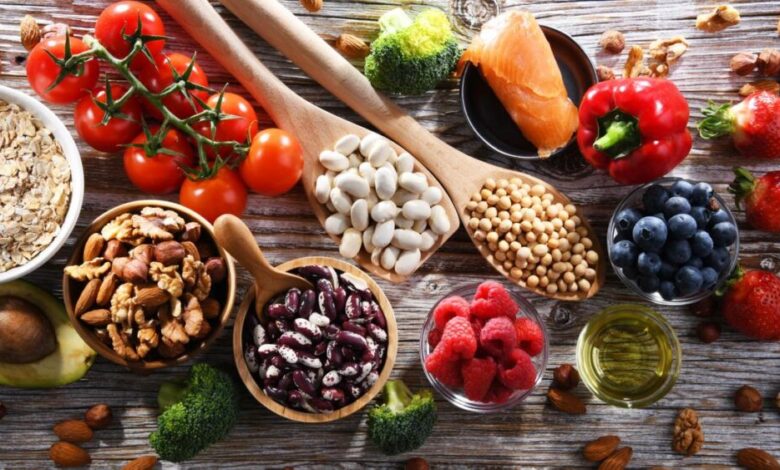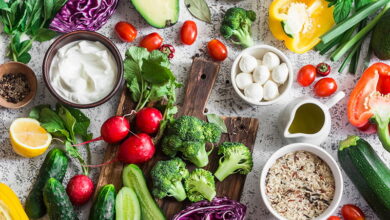wellhealthorganic.com:eat your peels: unlocking the nutritional benefits

wellhealthorganic.com:eat your peels: unlocking the nutritional benefits In today’s fast-paced world, maintaining a balanced diet often takes a back seat to convenience and indulgence. However, the significance of nutrition in our overall well-being cannot be overstated. What we eat directly impacts our physical and mental health, influencing everything from energy levels to mood stability. This article aims to shed light on the fundamentals of healthy wellhealthorganic.com:eat your peels: unlocking the nutritional benefits eating and provide practical tips for incorporating nutritious foods into your daily routine.
Understanding the Role of Nutrition in Overall Well-being

Nutrition plays a pivotal role in supporting bodily functions and maintaining optimal health. Every cell, tissue, and organ in our body relies on a steady supply of essential nutrients to function efficiently. From carbohydrates and proteins to vitamins and minerals, each nutrient serves a unique purpose, contributing to processes such as energy production, immune function, and tissue repair.
The Impact of Diet on Physical and Mental Health
Beyond physical health, diet also plays a crucial role in mental well-being. Research suggests that certain nutrients, such as omega-3 fatty acids and antioxidants, may have mood-enhancing properties, while poor dietary choices have been linked to an increased risk of mental health disorders such as depression and anxiety. By prioritizing nutrient-dense foods, we can support both our physical and mental health.

Setting the Stage for a Discussion on Healthy Eating Habits wellhealthorganic.com:eat your peels: unlocking the nutritional benefits
wellhealthorganic.com:eat your peels: unlocking the nutritional benefits With the prevalence of processed foods and fad diets, it’s easy to become overwhelmed by conflicting nutrition advice. However, by focusing on whole, minimally processed foods and adopting mindful eating habits, we can lay the foundation for a sustainable and health-promoting diet. In the following sections, we’ll explore the components of a balanced diet, the benefits of consuming fresh fruits and vegetables, and the importance of making informed food choices. wellhealthorganic.com:eat your peels: unlocking the nutritional benefits
The Fundamentals of a Balanced Diet
Eating a balanced diet is key to meeting our nutritional needs and promoting overall health. By including a variety of foods from all food groups, we can ensure that our bodies receive the essential nutrients they require for optimal functioning.
Exploring the Five Food Groups
The five food groups—grains and cereals, fruits and vegetables, protein sources, dairy products, and healthy fats and oils—provide a diverse array of nutrients necessary for good health. Incorporating foods from each group into our meals helps to ensure that we obtain a balanced mix of macronutrients (carbohydrates, proteins, and fats) and micronutrients (vitamins and minerals).
- Grains and Cereals: Whole grains such as oats, quinoa, and brown rice are excellent sources of complex carbohydrates, fiber, and B vitamins.
- Fruits and Vegetables: Colorful fruits and vegetables are rich in vitamins, minerals, antioxidants, and dietary fiber. Aim to fill half your plate with fruits and vegetables at each meal.
- Protein Sources: Protein is essential for muscle repair, hormone production, and immune function. Opt for lean sources of protein such as poultry, fish, beans, legumes, tofu, and nuts.
- Dairy Products: Dairy products like milk, yogurt, and cheese are rich in calcium, protein, and other essential nutrients. Choose low-fat or non-fat options to limit saturated fat intake.
- Healthy Fats and Oils: While fats often get a bad rap, certain fats are essential for heart health and brain function. Incorporate sources of healthy fats such as olive oil, avocado, nuts, and seeds into your diet.
Understanding Portion Control and Serving Sizes
wellhealthorganic.com:eat your peels: unlocking the nutritional benefits In addition to choosing nutrient-dense foods, practicing portion control is essential for maintaining a healthy weight and preventing overeating. Paying attention to serving sizes and listening to your body’s hunger and fullness cues can help you avoid consuming excess calories. wellhealthorganic.com:eat your peels: unlocking the nutritional benefits

Tips for Planning Balanced Meals
wellhealthorganic.com:eat your peels: unlocking the nutritional benefits Meal planning is a valuable tool for ensuring that you have nutritious options readily available throughout the week. Consider preparing meals in advance, stocking up on staple ingredients, and incorporating a variety of flavors and textures into your dishes for a satisfying eating experience. wellhealthorganic.com:eat your peels: unlocking the nutritional benefits
The Benefits of Eating Fresh Fruits and Vegetables wellhealthorganic.com:eat your peels: unlocking the nutritional benefits
wellhealthorganic.com:eat your peels: unlocking the nutritional benefits Fruits and vegetables are nature’s nutritional powerhouses, packed with vitamins, minerals, antioxidants, and phytochemicals that promote health and vitality. Including a variety of fresh produce in your diet offers a multitude of benefits for your body and mind. wellhealthorganic.com:eat your peels: unlocking the nutritional benefits
Nutritional Value of Fresh Produce
Fresh fruits and vegetables are brimming with essential nutrients that support overall health and well-being. From vitamin C in citrus fruits to beta-carotene in leafy greens, each fruit and vegetable brings its own unique nutritional profile to the table.
- Vitamins and Minerals: Fruits and vegetables are excellent sources of vitamins A, C, and K, as well as minerals such as potassium, magnesium, and folate. wellhealthorganic.com:eat your peels: unlocking the nutritional benefits
- Dietary Fiber: Fiber, found abundantly in fruits, vegetables, whole grains, and legumes, plays a crucial role in digestive health, blood sugar regulation, and weight management.
- Antioxidants: Antioxidants help to neutralize harmful free radicals in the body, protecting against cellular damage and reducing the risk of chronic diseases such as heart disease, cancer, and Alzheimer’s disease.
Health Benefits of Consuming a Variety of Fruits and Vegetables
Eating a rainbow of fruits and vegetables provides a wide range of health benefits, including:
- Improved Digestive Health: The fiber content in fruits and vegetables supports healthy digestion by promoting regular bowel movements and preventing constipation.
- Boosted Immune System: Vitamins A, C, and E, along with other antioxidants found in fruits and vegetables, play a critical role in supporting immune function and fighting off infections.
- Lower Risk of Chronic Diseases: Diets rich in fruits and vegetables have been linked to a reduced risk of heart disease, stroke, certain cancers, and other chronic conditions.
Incorporating Fresh Produce into Everyday Meals
Finding creative ways to incorporate fruits and vegetables into your meals can make healthy eating more enjoyable and accessible. Experiment with different cooking methods, flavor combinations, and culinary techniques to make the most of seasonal produce and add variety to your diet.
WellHealthOrganic.com: Eat Your Peels
Eating your peels is a simple yet effective way to maximize the nutritional value of fruits and vegetables. Contrary to popular belief, many of the nutrients found in produce are concentrated in or just beneath the skin, making peels a valuable source of vitamins, minerals, and dietary fiber.
The Power of Whole Foods
wellhealthorganic.com:eat your peels: unlocking the nutritional benefits Consuming fruits and vegetables in their entirety aligns with the principles of whole-food nutrition, which emphasizes the importance of eating foods in their most natural and unprocessed form. By including peels in your diet, you harness the full spectrum of nutrients that these foods have to offer, promoting optimal health and vitality. wellhealthorganic.com:eat your peels: unlocking the nutritional benefits
FAQs (Frequently Asked Questions)
Are fruit and vegetable peels safe to eat? Yes, as long as they are properly washed to remove any dirt or pesticide residue. Opt for organic produce when possible.
How can I incorporate peels into my diet? You can add citrus zest to salads, smoothies, or baked goods, and use vegetable peels in soups, stews, or as a nutritious snack when roasted.
Do peels contain pesticides? While some peels may retain pesticide residues, washing them thoroughly under running water can help reduce exposure. Choosing organic produce can also minimize pesticide contamination.
Can eating peels cause digestive issues? For individuals with sensitive digestive systems, consuming large quantities of peels may cause discomfort. Start with small portions and monitor how your body responds.
Are there any peels that should be avoided? Certain peels, such as those from non-edible or toxic plants, should be avoided. Always research before consuming unfamiliar peels.
What are some creative ways to use peels in cooking? Get adventurous in the kitchen by making candied citrus peels, pickled watermelon rinds, or vegetable peel crisps. Experiment with different flavors and textures to elevate your meals.
Conclusion
Incorporating fruit and vegetable peels into your diet is not only a nutritious choice but also a sustainable one. By embracing these often-overlooked parts, you can enhance your health, reduce food waste, and unleash a world of culinary possibilities. So next time you reach for that apple or potato, remember to eat your peels!
wellhealthorganic.com:eat your peels: unlocking the nutritional benefits



